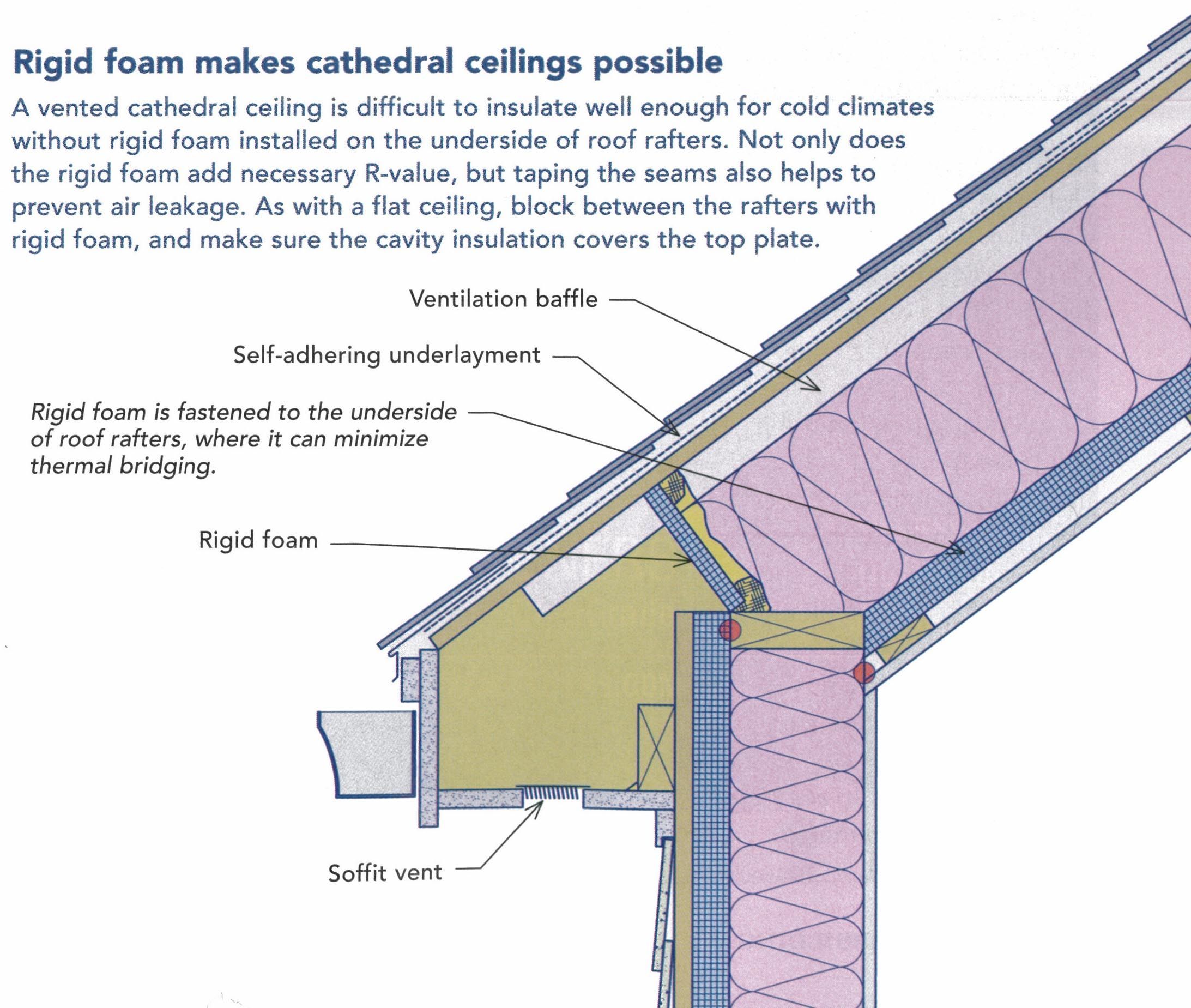Roof Insulation Board Between Rafters

The general advice we give is that you should always insulate between and above the rafters or between and under the rafters on our u value calculator we don t give an option for putting insulation between the rafters.
Roof insulation board between rafters. 100mm based on 150mm rafters leaving 50mm air flow. Measure the space between the rafters where the insulation will be placed and cut the insulation boards marginally wider than the space to ensure a friction fit upon installation. Rolls are usually used for long expanses such as length of floor for entire attic while batts are fit between studs in attic rafters. R value for fiberglass or wool batts per inch is between r3 and r3 5.
Best material to use is 100mm kingspan or celotex foil backed insulation board easily cut to size to fit between rafters. Depending on the specifics of the roof it may be possible to fully fill the rafter depth or in most cases leave a 25mm or 50mm air gap between the top face of the insulation and the. There is nothing wrong with that method in princaple is just very tricky hard work and itchy. Rafter boards are fastened to the ridge board at the peak and the top plate where they join the wall.
Rigid polyisocyanurate pir foam insulation boards from celotex are among the most thermally efficient commonly available insulation materials on the market. We would always recommend having a breathable membrane in place between the tiles and the rafters too to allow the roof to breathe. Easiest insulation for layperson to install fairly inexpensive r value doesn t fluctuate as with loose fill. When you use solid insulation board to create a warm loft the key thing to remember is ventilation you must keep a 50mm gap between the roof and the rigid insulation board.
Where the insulation does not fill the total rafter depth the low emissivity foil facings can gain additional thermal benefit from the air spaces they face. Fit the cut quinn therm qr insulation boards tightly between the rafters with the quinn therm branded side facing into the building. Being lightweight they do not impose significant additional loads on existing structures. In finished space insulation is placed between the rafter boards and drywall or other material is fastened to the face.














































